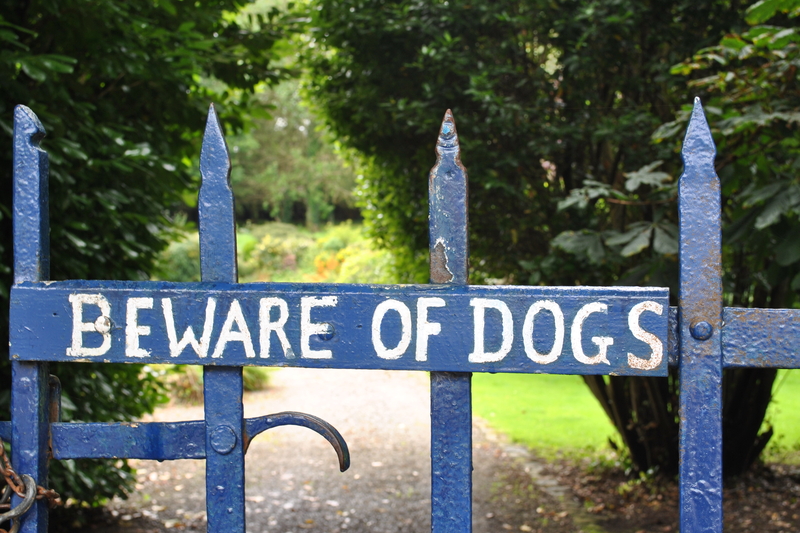Deciding to allow pets on your rental property is about more than just the potential damage to your home. When a tenant brings along a dog, you are exposed to possible liability if the dog harms someone. While the tenant, as the dog’s owner, is usually found to be at fault, you could end up facing legal action in some specific situations.
Learning more about how dog bite liability is determined can help you decide if allowing pets on your premises is a good idea and will enable you to protect yourself in advance, just in case.
Who is to Blame for an Attack?
A dog that bites someone who is passing by or visiting your property with permission is usually the responsibility of the tenant since they are the owner of the dog. Bites are also not the only potential problem; a big dog that knocks someone over, injures another pet or breaks into someone else's yard will also be a legal headache for you both.
While the actual owner of the pet is the one responsible for his behavior (and therefore any damage he does) you could be pulled into a case as well in a few specific circumstances:
You knew the dog was dangerous: According to legal experts at Nolo.com, if you knowingly allow a dangerous dog to stay on your property, you could be liable if that dog bites someone. If you're afraid of the dog, it has harmed someone else, or it acts aggressively, take action before it bites someone. Failing to do something could leave you liable for injuries the animal causes.
You’ve “harbored” the dog: Harboring means you've cared for the dog over a period. If you dog-sit, care for the animal while the owner is away, or host it at your house, you may share liability for its behavior. The landlords who have trouble with harboring are usually renting out a place to a friend or family member and are familiar with the dog – and are shocked when the animal injures someone. Be wary of animals you know and remember that you could be held liable if you feed, house, watch, or otherwise accept responsibility for the dog.
You failed to remove the animal: Your pet clause should state that you have the right to remove a dangerous animal. If you know a dog is dangerous and your lease allows you to request its removal, then you need to follow through. If you have a reason to remove the dog and the legal right to do so, but don’t act, you could be held liable for its actions.
You allowed an illegal or dangerous animal: Dogs aren’t the only pets that can bite, and not all tenants have common pets. Snakes, spiders, exotic reptiles and other unusual pets can also cause harm. If you knowingly allow a wild animal like a wolf, bear, or chimp to be kept as a pet, you could end up with legal issues, even if you don’t handle, house, or own the animal yourself.
Mitigating your Risk as a Landlord
Size Doesn't Matter
You may think of a dangerous dog as a specific breed or size, but any dog can potentially bite. Make sure you meet any dog your tenant proposes to bring onto your property in person so that you can see him for yourself. This won’t prevent all problems, but if aggression is already present, you’ll know before problems start.
Recommend or Require Renter’s Insurance
If sued after a dog bite, your tenant may not have enough money for rent – or could leave the area entirely, leaving you in a financial jam. Insisting on renter’s insurance that includes liability means that you’re both covered in the event of an emergency and ensures your tenant remains financially stable.
Have a Pet Policy
Having a pet policy in place protects you because it gives you the option of removing an animal from your property. It also allows you to specify which breeds or types of animals you allow (by species, breed, weight or other quality). You can also specify that you need a photo of the pet, along with proof of vaccinations. While this will not keep a pet from biting someone, this proof shows that the tenant cares for the pet and has taken all possible precautions against rabies and other potentially harmful illnesses.
Knowing the breeds and animals your area restricts and insisting on greeting any pets in person can help protect you from liability if a tenant’s pet harms someone. A strict pet policy, coupled with your insurance rider and awareness of the issue could protect you from a nasty lawsuit – and save you time and money as a landlord, too.
Need help managing your tenants' pets? Trust the experts at Everest Property Management to create your pet policy and ensure you are protected from dangerous dogs.



 As a top producing Realtor and Property Manager; Terry specializes in sales, extensive construction homes, rentals, REO’s, short sales, and all aspects of Real Estate. After graduating the University of Michigan with a master in MBA, Terry continued his endeavor and now has over 15+ years of experience in the Real Estate world. If there is anything that has to do with Real Estate and sales, you can always be sure of Terry to provide important, specialized knowledge.
As a top producing Realtor and Property Manager; Terry specializes in sales, extensive construction homes, rentals, REO’s, short sales, and all aspects of Real Estate. After graduating the University of Michigan with a master in MBA, Terry continued his endeavor and now has over 15+ years of experience in the Real Estate world. If there is anything that has to do with Real Estate and sales, you can always be sure of Terry to provide important, specialized knowledge.




